While the human brain is more powerful that any currently existing computer, it is also subject to Cognitive Bias, those generalisations the brain has evolved for use in speeding up our decisions in dangerous situations, and to enhance our sociability. While many of them are useful (and no doubt helped to keep us alive as a species), they can also significantly
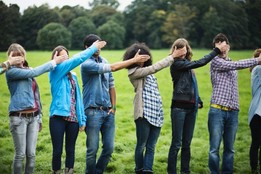
I think it's also important to note at this point that a cognitive bias is not something we are generally aware of, or on most occasions even able to be aware of. They're deeply ingrained evolutionary traits that influence us without our knowledge or consent. They are easier to spot in hindsight as they happen before we actually think about something. Becoming aware of a cognitive bias affecting your relationship is not a sign of weakness or opportunity to apportion blame – rather, it's an opportunity to learn and grow, harnessing your new-found awareness.
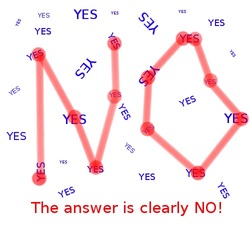
We love to be around and be influenced by people who agree with us. Most people tend to visit websites that agree with their social or political views, or share common traits or tastes. People or situations where our views are challenged make us uncomfortable and insecure, and we tend to avoid them. While this may be handy on many occasions, it can influence how we respond (or don't respond) in a relationship. If we focus only on those things we agree on, referencing only those things that fuel our pre-existing ideas, then we are likely to reject or ignore whole aspects of other people. We may not even be aware of those aspects at all!
An important part of healthy human relationships is to be aware of and to validate other people, even if we don't necessarily agree with them. Not even noticing something that is important to your partner (as a result of confirmation bias) is a real road block to a secure and happy relationship. (The internet has really fuelled this particular bias!)
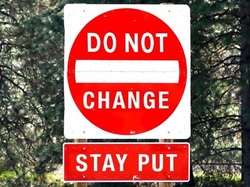
Human beings don't like change, and will often go out of their way to ensure things change as little as possible. It is the great inertia of human society. This cognitive bias is insidious as it works to undermine a willingness to change, even if you have recognised that change is preferable. Becoming aware of this fear to change, this preference to be conservative, is a very important step in any relationship whose members have realised that they need and want to change. Putting in the hard work to confront the inertia of status quo bias is a vital part of couples therapy, and indeed with anyone who seeks to change the way their relationships operate.
Negativity Bias
It's unfortunate that we have evolved to pay more attention to bad news. We tend to see bad news as more important or profound, as well as more believable. On the opposite side, we find good news to be boring and unimportant. I'm sure you can see this in your own life, but watching any news report is bound to confirm this bias. It's why people believe that "times are tough" even if the standard of living has increased, or that "crime is on the rise" when it can be proven to be otherwise.
In our relationships, negativity bias makes the "bad" things come to the front of our attention, and forces the "good" things into a dark corner. It's difficult to do, but useful to force ourselves to look for the "good" aspects, and to nurture them. To not do so allows the negative aspects of our relationships to become the solidified and ongoing story of the relationship. Not pleasant or ideal.
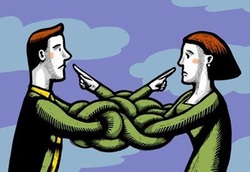
We are all in our own minds all day every day. It's reasonable, therefore, to find it difficult to imagine any other way. We tend to act and behave as if everyone thinks like us and that further, everyone agrees with us. (This links in with another bias called "false consensus bias" - another bias fuelled by the internet.) We can easily take ourselves to be the norm, and assume that people are on the same page as us.
Projection bias can have a significant effect on a relationship, as we can easily be led by our brains telling us that what we're thinking is not only the same as the other person, but they also agree with our opinions of that thought. Simple verbal communication can dispel these false assumptions, but the assumptions can be so ingrained that we don't think to question them, or "test them out." Try telling a friend or partner what you are actually thinking and see where that takes you. You may be surprised how differently people think!
The Current Moment Bias
We humans have a tendency to live in the moment, and to struggle to make decisions now to encourage outcomes in the future. Think of how easy it is to plan healthy food for the next week, only to find that you chose to order pizza instead! The two components of seeking pleasure and avoiding pain are crucial to understanding this bias, and our automatic response is to leave pain for later. It might not come!
In relationships, this can encourage people to put up with problems, to learn to tolerate them, rather than to go through the painful process of working through them towards the future. It's surprising how much relief is experienced by both people, be it partners, friends, or work colleagues, once that initial unpleasant part is over, and the future then becomes something exciting to work towards.

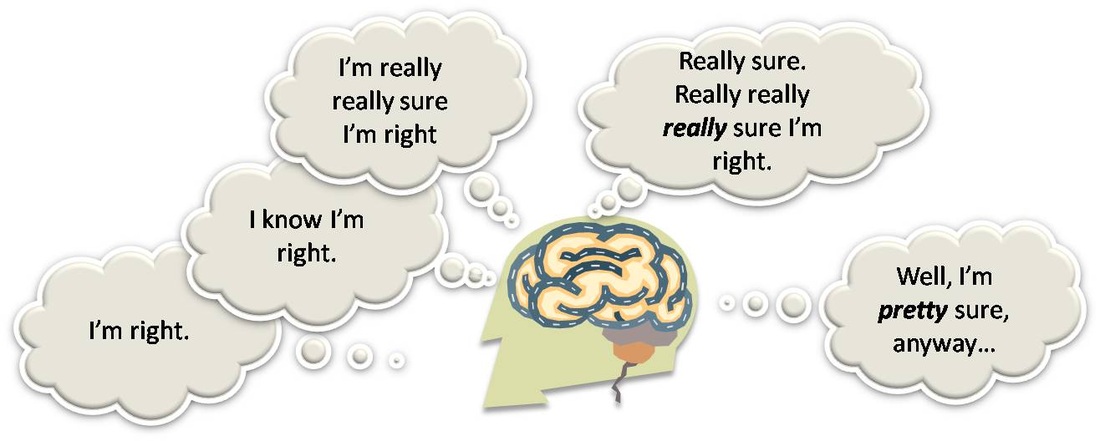
 RSS Feed
RSS Feed